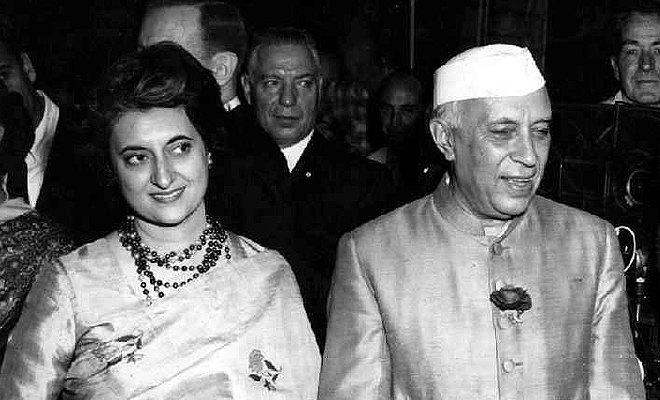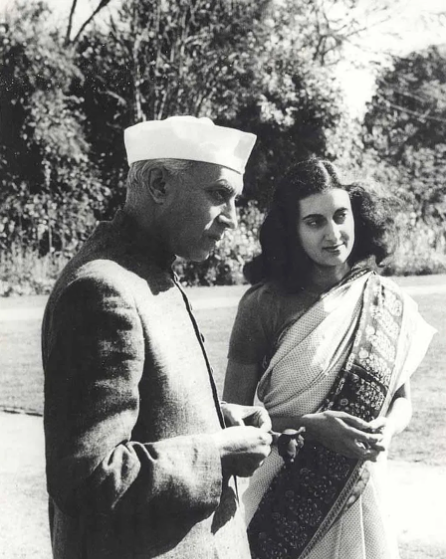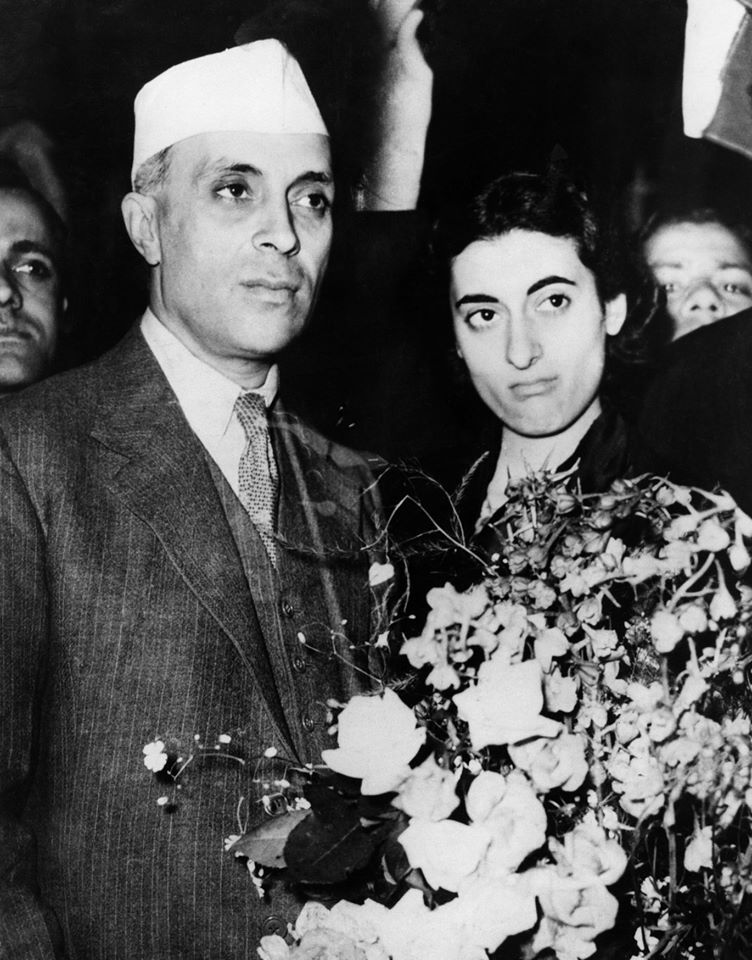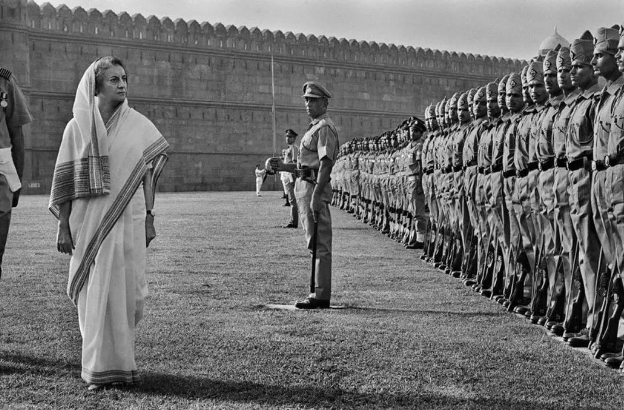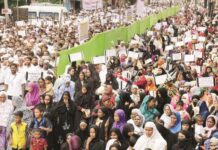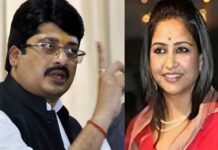History tells us that the first member of Nehru’s first cabinet to reach Parliament was not from Nehru’s family but from Sardar Patel’s family. First Prime Minister Pandit Nehru’s accusation of ‘parivar waad’, how much truth, how much fiction?
The quantity of attacks against the Gandhi Nehru family in relation to “Parivar Vaad” during the past ten years is unprecedented. No political family has ever faced such a barrage of criticism. It began in 2013 when the BJP appointed Narendra Modi to lead its electoral campaign committee. Since then, Modi has not missed an occasion to accuse Sonia, Rahul, and Priyanka Gandhi of nepotism. The BJP is using this attack as a deliberate tactic.
The Modi administration’s ministries and BJP leaders are equally thorough. Rahul Gandhi is still being criticised in this regard by Union Minister Smriti Irani, who won the Amethi constituency during the 2019 Lok Sabha elections. First, how much of Pandit Nehru’s “parivar waad” charge was true and how much was fiction? First Prime Minister Pandit Nehru’s accusation of ‘parivar waad’
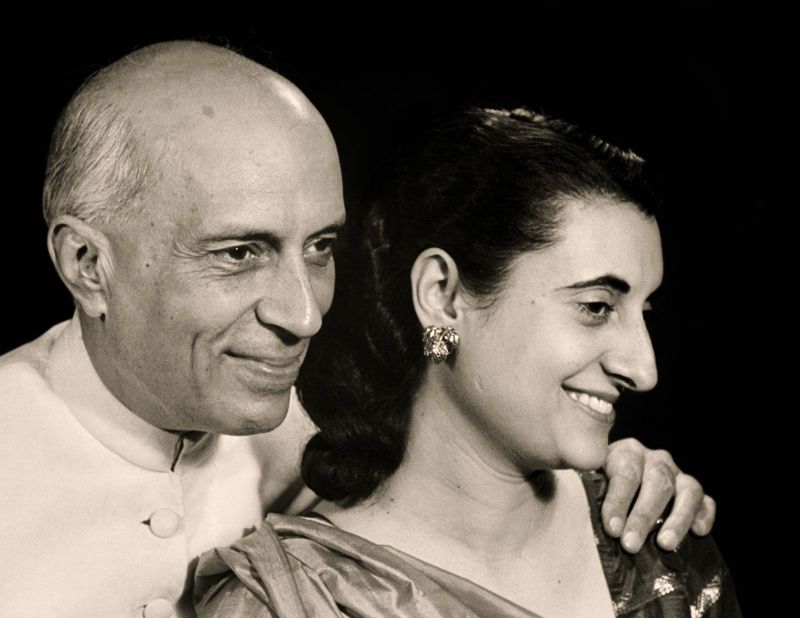
According to the BJP and Modi, the term “Parivar Vaad” in politics often alludes to Pandit Jawaharlal Nehru’s family, who served as the nation’s first prime minister. It will be intriguing to observe if Pandit Nehru actually attempted to promote dynasticism in such a situation. Therefore, there can be no effective way to counter these claims made about “Parivar Vaad” in politics. First Prime Minister Pandit Nehru’s accusation of ‘parivar waad’
However, one method of doing this would be by the involvement of relatives of ministers in the first Union Cabinet of independent India. On August 14 and 15, 1947, Pandit Jawaharlal Nehru established his first government. It resembled a national government in certain ways because it included non-political individuals and representatives of groups opposed to the Congress. It took into account geographical balance as well as representation of various religions. Sardar Patel, the deputy prime minister, and 12 other ministers served in Pandit Nehru’s first cabinet. First Prime Minister Pandit Nehru’s accusation of ‘parivar waad’
Among them are Dr. Rajinder Prasad, Maulana Abul Kalam Azad, Dr. John Matthai, RK Shan Mokham Shetty, Dr. Bhimrao Ambedkar, Jagjeevan Ram, Sardar Baldev Singh, CH Bhabha, Rajkumar Amrit Kaur, Rafi Ahmed Qedwai, Dr. Shyama Prasad Mukherjee, And people like VN Gadgil were ministers. First Prime Minister Pandit Nehru’s accusation of ‘parivar waad’, how much truth, how much fiction? First Prime Minister Pandit Nehru’s accusation of ‘parivar waad’
How was this cabinet constructed? There has been a lot written about it, and there is also documentary proof accessible. It’s crucial to note, though, that Bhimrao Ambedkar and Shyama Prasad Mukherjee, two of Nehru’s political adversaries, were also members of his first government. Ambedkar listed the Hindu Mahasabha’s representative Shyama Prasad Mukherjee as well as his organisation, the Scheduled Caste Federation (SCF). First Prime Minister Pandit Nehru’s accusation of ‘parivar waad’
Since neither the constitution nor the parliament had yet been established, the first cabinet was, in fact, totally chosen by nomination. In the current context, “Parivar Vaad” is solely understood in terms of electoral politics; hence, we can use the 1951 first Lok Sabha elections as a standard for assessing “Parivar Vaad.” It should be recalled that even before the first general election, Sardar Vallabhbhai Patel’s first general election (15 December 1950), Nehru’s first cabinet had fallen apart, and numerous ministers, including Ambedkar and Shyama Prasad Mukherjee, had defected. He was already deceased. First, how much of Pandit Nehru’s “parivar waad” charge was true and how much was fiction?
According to history, Sardar Patel’s family, not Nehru’s, was the first member of Nehru’s first government to be elected to Parliament. Only Maniben, the daughter of Sardar Vallabhbhai Patel, was elected to the Lok Sabha in the first general election out of all the members of Nehru’s first government. On a Congress ticket, she won the Gujarat seat. Without Nehru’s approval, could Moneybean have obtained the ticket? no manner. Nehru was the President of the Congress at the time in addition to serving as Prime Minister.
In 1957, Maniban reentered the Lok Sabha. He was appointed to the Rajya Sabha by the Congress in 1964 after the Swatantra Party candidate won the elections in 1962. Later, during the 1977 Emergency, the same Maniban Patel joined the Congress party. In the election, Nehru’s daughter ran as an opponent of Indira Gandhi for the Janata Party, won, and was elected to the Lok Sabha. Another issue is that Sardar Patel’s son Dahiyabhai Patel disagreed with Kanhru and the Congress. He disagreed with his sister Minibean as well.
He had previously served in the Congress but left in 1957. He first entered the Rajya Sabha in 1958 with the aid of the “Maha Gujarat Janata Parishad.” Later, he joined the Swatantra Party, and he remained a Rajya Sabha member until 1973. One of the Swatantra Party’s most accomplished orators, he was. The wife of Dahiyabhai, Bhanumati, ran in the 1962 Lok Sabha elections but lost. First Prime Minister Pandit Nehru’s accusation of ‘parivar waad’
While her father was still prime minister, Indira Gandhi assumed the position of president of the Indian National Congress; nevertheless, her legislative career did not begin until after Nehru’s passing. Lal Bahadur Shastri succeeded Nehru as the country’s second prime minister on June 9, 1964, and he included Indira in his cabinet. Indira Gandhi initially entered the Rajya Sabha in 1964 after joining Shastri’s cabinet. In 1966, Indira was appointed prime minister at the proposal of K Kamaraj, the then-Congress President, during the turmoil following Shastri’s passing. First Prime Minister Pandit Nehru’s accusation of ‘parivar waad’
The history that followed is well known. The only woman in Nehru’s first government was Raj Kumari Amrit Kaur, but as she was single, her political legacy is ruled out. Even though he treated his nephew Nooruddin like a son and raised him as such, Maulana Abul Kalam Azad had no children and had no involvement in politics. Similar to this, it is said that Rafi Ahmad Qadwai had a son who passed away at an early age. One of Sardar Baldev Singh’s two sons, Surjit Singh, served in Prakash Singh Badal’s initial ministry. Nothing else about Baldev Singh’s political legacy is known save this. Given the limitations of Rakim Sutra’s research, little is known regarding the political legacies of John Matthai, CH Bhabha, and Shan Mokham Shetty. All four of Shyama Prasad Mukherjee’s children had nothing to do with politics. The first president of the nation’s first government, Dr. Rajendra Prasad, son Murtivanjay Prasad, twice made it to the Lok Sabha. The first occurrence (from Maharajganj) occurred in 1967. Vithalrao Gadgil, the son of NV Gadgil, served in a number of Congress administrations between 1971 and 1991 and was elected to the Rajya Sabha and Lok Sabha twice, first (as Sivan) on a Congress ticket and once (again) on a Janata Party ticket in 1977. He was a minister as well.
It is necessary to talk about the political legacies of Ambedkar and Jagjivan Ram separately. Both men served in Nehru’s first government. They were both significant national Dalit leaders. Even though Bhimrao Ambedkar had a significant part in the constitution’s drafting, it is paradoxical that he won the election but was never elected to the legislature. He ran for the Bombay North Lok Sabha seat in the first general election but was defeated by the Congress candidate. After that, he ran in the Bhandara Lok Sabha by-election but lost as well. In 1956, Ambedkar perished. Although his son Prakash Ambedkar twice won the Lok Sabha elections in 1998 and 1999, his only son Yashwant Ambedkar was involved in the Republican Party of India’s creation but never served in the legislature. Anand Tel Tambade is the son-in-law of Yashwant Ambedkar, or the son-in-law of Bhimrao Ambedkar, who the current Modi government has filed a case against in the Bhima Koregaon case. This information about the Ambedkar family’s heritage is also very significant. Under the “UAPA,” a case has been filed against them. First Prime Minister Pandit Nehru’s accusation of ‘parivar waad’
In addition to serving in Nehru’s first administration, Jagjivan Ram was frequently considered a strong candidate for the position of Prime Minister. However, Jagjivan Ram’s daughter Meera Kumar, who left the Indian Foreign Service to enter politics, has been an MP multiple times as well as a Union Minister and Speaker of the Lok Sabha. This is in contrast to Jagjivan Ram’s son Suresh, whose political prospects were allegedly destroyed by an alleged sex scandal, as detailed in senior journalist Neerja Chowdhury’s recently released book “How Prime Ministers Decide.” First Prime Minister Pandit Nehru’s accusation of ‘parivar waad’
Actually, Parivarvaad is a game of ideas in politics. Nepotism is a tool that the BJP in particular employs to attack the “Gandhi, Nehru” dynasty. Despite the fact that Nehru played no part in Indira’s time in parliament, it is an easy target for him. There are very few political parties in the country now that are free from the influence of “Parivar Vaad,” with the exception of communist parties. The Scindia family and the Gandhi-Nehru family are currently regarded as the two families with the greatest political clout in the nation. Although Vijayraje Scindia began his political career with the Congress, his entire family is now a member of the BJP. by the elections in 2024, It would be interesting to see how the BJP uses “Parivar Vaad” as a weapon against the Congress, as well as how the electorate reacts to it. First Prime Minister Pandit Nehru’s accusation of ‘parivar waad’
